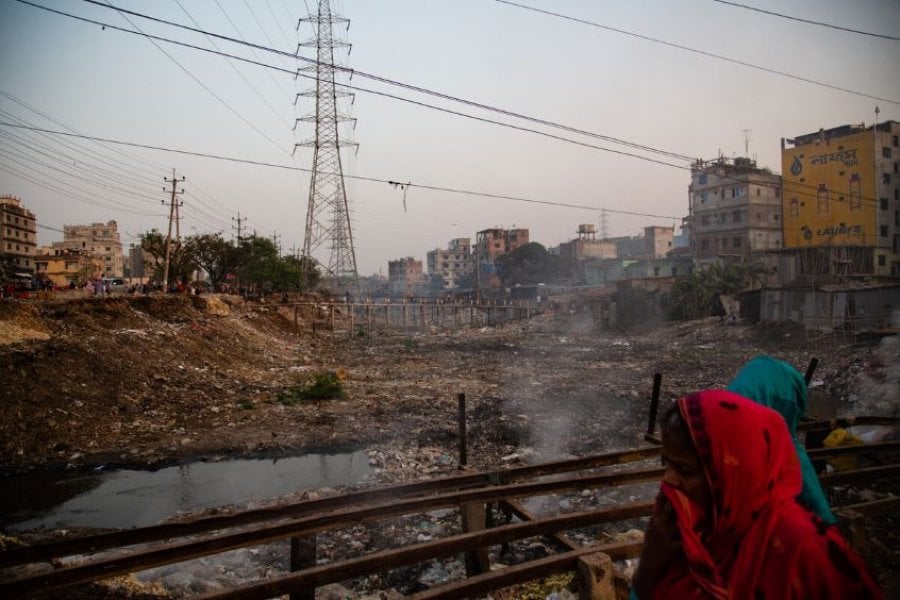
As our world progresses towards a zero-waste future, it's imperative to recognise the pivotal role of women and girls in driving this transformative journey.
The escalating volume of waste generation globally poses significant challenges. In particular, it is crucial to emphasise the health and social burdens of waste on maternal, adolescent, reproductive, and child health around the world. Amidst these challenges, we must also celebrate and bolster the inclusive participation of women and girls in sustainable initiatives, ensuring their empowerment and well-being as we strive for a cleaner, greener planet.
Addressing health and social burdens
Inadequate waste management is a pressing issue with interconnected impacts on climate change and human health. Poor waste disposal practices contribute to air and water pollution, exacerbating respiratory ailments and waterborne diseases. Moreover, releasing greenhouse gases from waste contributes to climate change, further impacting human health through extreme weather events and spreading infectious diseases. Similarly, as highlighted in the recent launch of the LSHTM CLIMACH group, pregnant women and children often face specific health challenges and vulnerabilities as a result of climate change. Women and girls, often residing in informal settlements, bear the brunt of these challenges, facing heightened risks during pregnancy and childhood. Addressing these burdens requires concerted efforts to provide access to protective equipment, decent income opportunities, and technical education.
Reframing Waste: A source of wealth and opportunity
There’s a growing global movement to reframe waste as a valuable resource, ripe for transformation. Initiatives like Upcycle Africa in Uganda exemplify this ethos, championing equitable employment opportunities by converting plastic waste into eco-bricks for construction. This is just one such example of initiatives working to see waste not as a disposable resource but as a source of material. Although there is ongoing work to reduce waste, global waste generation is still predicted to surge by 70 percent, underscoring the urgency of sustainable waste management interventions like the Afri-Plastics challenge.
Recognising women's contributions and challenges
The International Day of Zero Waste serves as a poignant reminder of the struggles and contributions of women and girls worldwide. As COP28’s Gender agenda stated in November, “women play a crucial role as frontline responders to climate stresses and leaders in climate solutions.” This is also true for waste management and improvements in local environmental health. It is women who are at the forefront of ensuring their children, families and local communities can live in waste-free surroundings. From grassroots recycling initiatives run of women-led organisations like Chanja Datti and Ecobarter, both in West Africa, to participation in global sustainability campaigns, women and girls are driving meaningful change while protecting the health of their families. However, their efforts are often hindered by social stigma, inadequate infrastructure, and lack of recognition. Advocating for social recognition and providing incentives, such as official forms of identification, can empower women and girls to take pride in their roles in waste collection and recycling.
Strengthening inclusive participation
To continue changing perspectives and strengthening inclusive participation, concerted efforts are needed at the local, national, and global levels. This includes promoting gender-responsive policies, investing in education and training programs tailored to the needs of women and girls, and fostering partnerships between governments, civil society, and the private sector. By prioritising women's empowerment and well-being, we can harness their full potential as agents of change in the global pursuit of zero waste and healthier environments.
Towards a sustainable future for all
As we navigate the complexities of waste management and environmental stewardship, let us reaffirm our commitment to empowering women and girls as catalysts for positive change. By recognising their contributions, addressing their challenges, and championing their inclusion, we can create a healthier, more sustainable and equitable world for future generations. Together, let us continue to advocate for a zero-waste future where women and girls are at the forefront of building a cleaner, healthier planet for all.
LSHTM's short courses provide opportunities to study specialised topics across a broad range of public and global health fields. From AMR to vaccines, travel medicine to clinical trials, and modelling to malaria, refresh your skills and join one of our short courses today.
